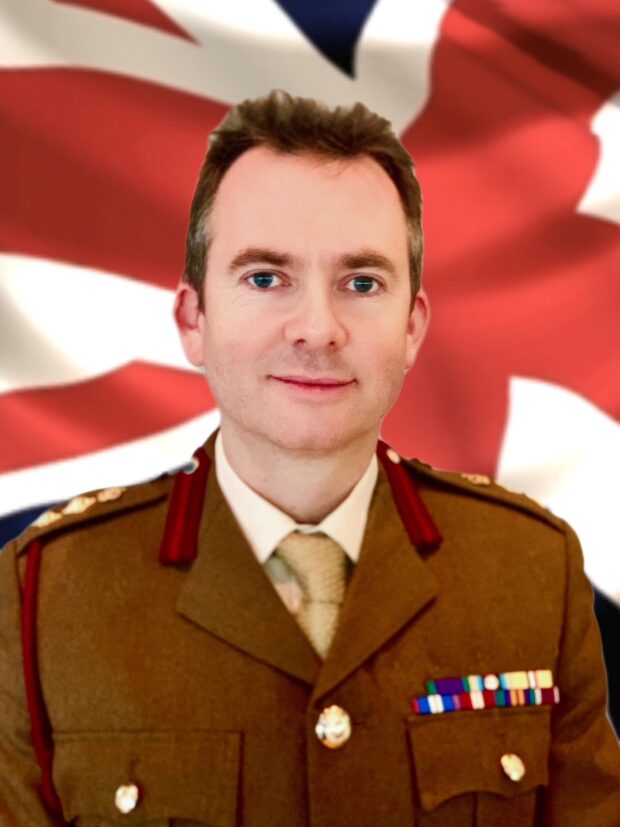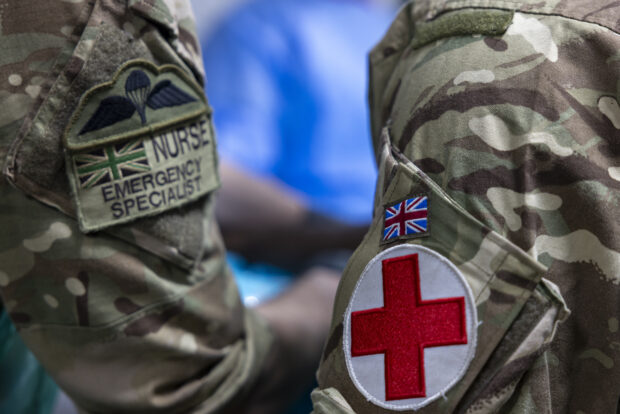
Brigadier Chris Wright, Head Medical Operations and Capability, Defence Medical Services
Our people are the lifeblood of CSOC – a dedicated force of 26,000 specialists stationed at over 130 sites worldwide. From cyber warriors and medics to intelligence analysts, special forces, educators, and Defence attachés, our specialists are ready to fight across all domains to protect the UK.
Find out how our specialist operators are across every UK operation, delivering the capabilities you don’t usually see - or those you can’t.
Decisions that are made today could save the life of a serviceman or servicewoman tomorrow. That responsibility drives our military medics, from the battlefield to the Ministry of Defence.
As a fundamental part of Cyber and Specialist Operations Command (CSOC) our medics work closely across Defence to meet the future medical and healthcare needs of the Armed Forces.
Integral to everything our forces do, as a specialist operations provider, no matter where the Armed Forces are asked to deploy. From humanitarian missions, operations and exercises to medical centres across the world – our medics are always there.
Brigadier Wright has dedicated his career to serving as a doctor in the Army, currently serving as Head of Medical Operations and Capability. He is responsible for advising and providing medical support to UK Defence Operations worldwide. Every piece of equipment we procure, every training programme we develop, and every policy we implement exists for one fundamental purpose: ensuring our forces receive the highest standard of medical care when they need it most.

From battlefield to boardroom
After graduating from Bristol University in 1999, I joined the Parachute Regiment as their Regimental Medical Officer. Those early deployments in Northern Ireland and Afghanistan shaped my understanding of what military medicine really means. It's about being there in the most dangerous moments, when someone's life hangs in the balance.
I trained in Emergency Medicine and specialised in Pre-Hospital Emergency Care, becoming experienced in combat casualty retrieval. Leading missions in Afghanistan during Operation HERRICK, I learned that every second counts. I've flown patients in everything from single-stretcher Gazelle helicopters to Chinook aircraft carrying eight casualties at once. Each flight reinforced my belief that we owe our service personnel nothing less than excellence.
Three years at the Pentagon during the COVID pandemic and the end of the first Trump administration gave me a broader perspective on international military medicine. My research into battlefield fatalities and resuscitation techniques, particularly advancements in blood transfusion for injured patients, has helped save countless lives. These days, I joke that I save lives by answering emails - but those emails represent crucial decisions about equipment, training, and policies that directly impact our forces' survival.
Our moral obligation
Since my time as a battalion Medical Officer, I've believed we have a fundamental responsibility to ensure our servicemen and women receive the highest quality healthcare. This extends from pre-deployment medical preparation to emergency treatment if they fall ill or sustain injuries whilst serving their country.
The capacity to provide immediate pain relief and reduce injury severity isn't just medically sound - it's morally imperative. When we can decrease the likelihood of fatalities, we're not only saving lives but also strengthening morale. This boost extends beyond military personnel to their families at home, who trust us to do everything possible to protect their loved ones in an emergency.
Supporting our allies
My current role has allowed me to support our Ukrainian partners in their fight for freedom. We've deployed military surgical teams to Ukraine, helping treat the injured and training Ukrainian military surgeons in specialised techniques, including plastic surgery for severe injuries caused by drone and missile strikes.
We've provided medical equipment, training, and armoured ambulances to Ukrainian medical forces. Our guidance has covered everything from preventing cold weather injuries to integrating female soldiers into their Armed Forces. This work demonstrates how medical excellence becomes a tool of international cooperation and defence.
The complexity of modern military medicine
Operations such as Non-combatant Evacuation Operations carry enormous medical responsibilities. If we evacuated 5,000 British passport holders from affected countries, they would require extensive medical support until safely resettled. Babies need care, expectant mothers require specialist attention, elderly people need ongoing treatment, and anyone injured during the operation requires immediate medical intervention.
Not all our work is humanitarian. When HMS Prince of Wales sailed through the Bab-al Mendeb Strait, we had medical teams embarked in case our ships came under attack. The aircraft carrier and its F35 aircraft represent some of the most sophisticated weaponry ever constructed, but they're operated by people who will require medical assistance if things go wrong. This is combat medical support - fundamentally different from humanitarian care.
The hidden complexity
Whilst my colleagues deploy worldwide, I'm primarily based in London. Meetings about medical equipment or training requirements are no less important than aircraft carrier movements. Defence operates within tight budget constraints, and we must ensure every pound is spent wisely.
Medical devices become outdated and require replacement with enhanced versions. When we deploy surgical teams, they need portable, rugged field sterilisers that work with our generators and require comprehensive team training. Every single item in a medical facility - from deployable GP teams ("Role1") through to large multi-specialty field hospitals ("Role3") - must be procured, integrated, and supported by trained personnel.
We must maintain interoperability with NATO allies, partners, and sometimes civilian agencies, all whilst meeting UK regulatory standards for training and medical care. The job is never finished, but that complexity makes it endlessly fascinating.
The human element
At the end of every process, policy decision, and equipment procurement lies a simple truth: there's likely to be a service member who is injured or unwell and requires the highest standard of care. We in the Defence Medical Services must perform at our absolute best when that serviceman or servicewoman faces what could be the most challenging day of their lives.
We deploy highly trained clinicians equipped with the best possible equipment and support because we hold human life in the highest regard. We cherish the lives of those who serve our nation, and that principle drives everything we do.
Every email I answer, every meeting I attend, and every decision I make carries the weight of that responsibility. When young medics join our ranks, when new equipment reaches the field, when training programmes are updated - all of this happens because we refuse to accept anything less than excellence in military medicine.
We stand ready to serve those who serve us all. That's not just our job - it's our privilege.
Leave a comment